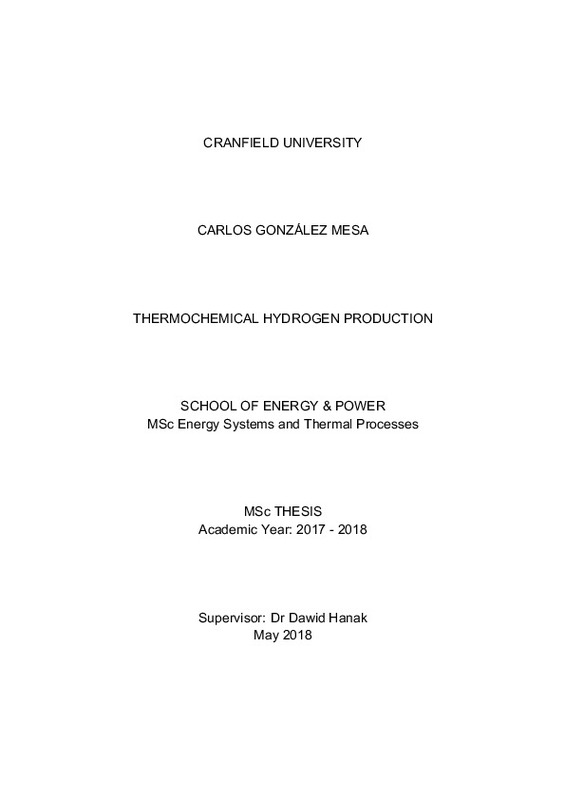JavaScript is disabled for your browser. Some features of this site may not work without it.
Buscar en RiuNet
Listar
Mi cuenta
Estadísticas
Ayuda RiuNet
Admin. UPV
Thermochemical Hydrogen Production
Mostrar el registro completo del ítem
González Mesa, C. (2018). Thermochemical Hydrogen Production. http://hdl.handle.net/10251/142938
Por favor, use este identificador para citar o enlazar este ítem: http://hdl.handle.net/10251/142938
Ficheros en el ítem
Metadatos del ítem
| Título: | Thermochemical Hydrogen Production | |||
| Otro titulo: |
|
|||
| Autor: | González Mesa, Carlos | |||
| Director(es): | ||||
| Entidad UPV: |
|
|||
| Fecha acto/lectura: |
|
|||
| Resumen: |
[ES] Se espera que el hidrogeno sea un potente carburante dentro del ámbito energético en el futuro. Aunque la disociación del agua a altas temperaturas parece la manera más sencilla de producir hidrógeno, la termodinámica ...[+]
[EN] The world population is continually increasing and so does the energy consumption.
Moreover, a huge percentage of this energy comes from fossil fuels. To solve this issue,
one of the streams of research is ...[+]
|
|||
| Palabras clave: |
|
|||
| Derechos de uso: | Reserva de todos los derechos | |||
| Editorial: |
|
|||
| Titulación: |
|
|||
| Tipo: |
|
recommendations
Este ítem aparece en la(s) siguiente(s) colección(ones)
-
ETSII - Trabajos académicos [10404]
Escuela Técnica Superior de Ingenieros Industriales







